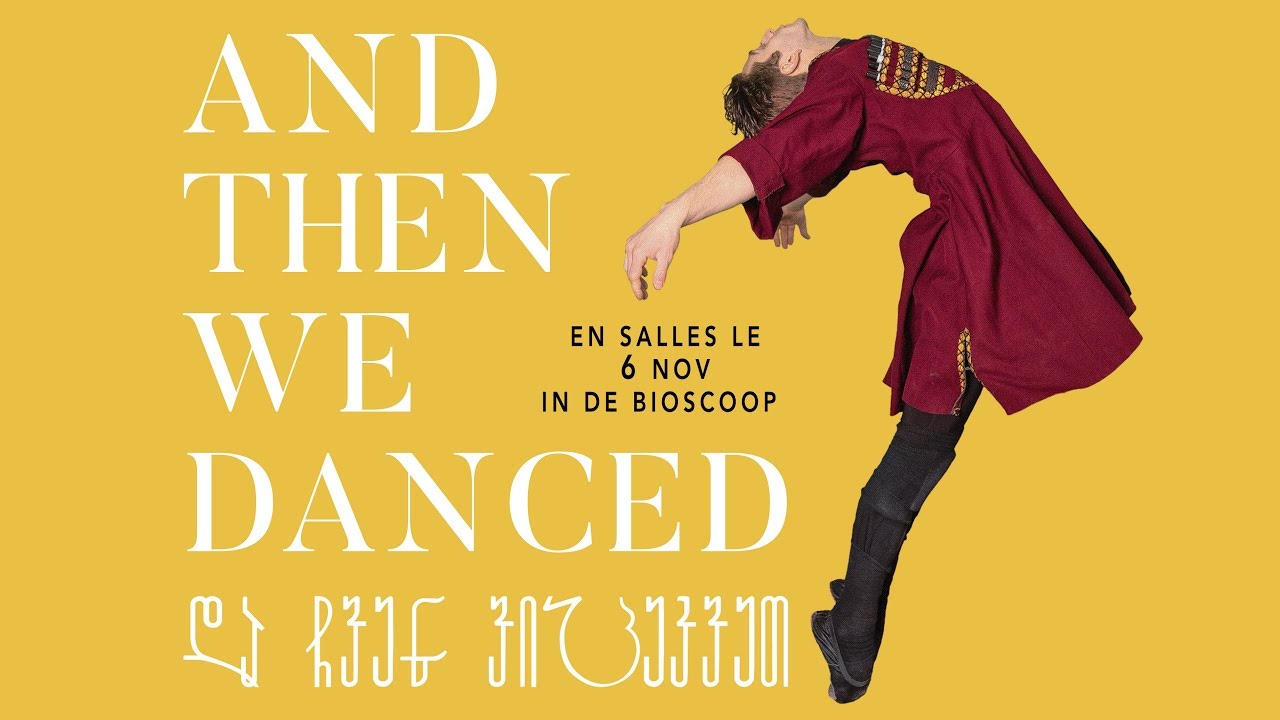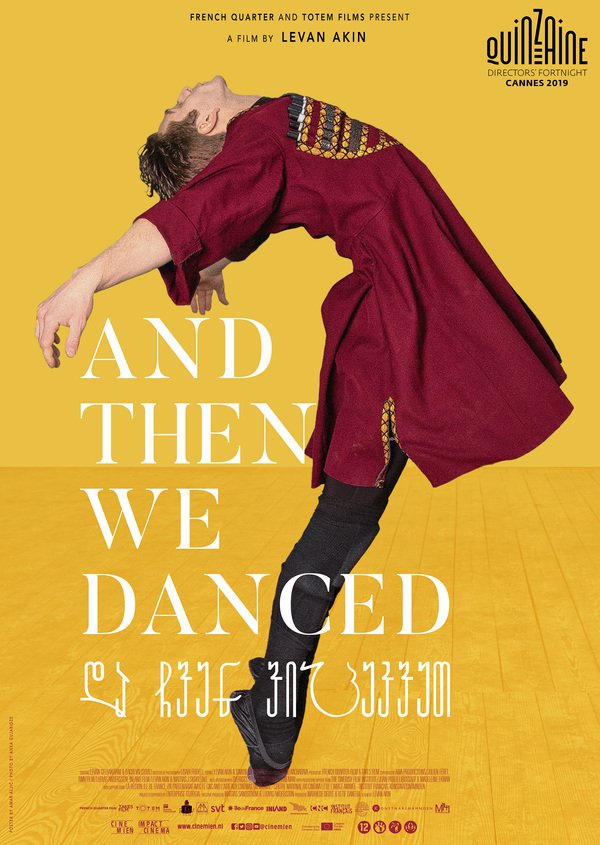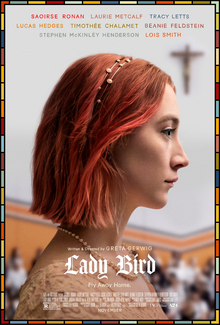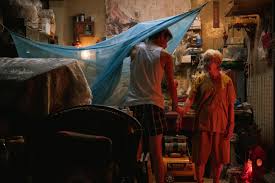

“As long as you’re dancing, you can
Mary OliverA Thousand Mornings
break the rules.
Sometimes breaking the rules is just
extending the rules.
Sometimes there are no rules.”
Does dancing give you the opportunity to break free from the rules? In the Georgian movie And Then We Danced, we follow Merab (Levan Gelbakhiani), a young dancer with the National Georgian Ensemble. Merab lives with his brother, his mother and his grandmother, getting by on the little money he earns as a waiter. When the new dancer, Irakli (Bachi Valishvili), arrives at the ensemble, what begins as a rivalry soon turns to longing as the two draw closer together.
And Then We Danced deals with the topic of homosexuality as it is viewed nowadays in a conservative country like Georgia. The more Merab seems to fall in love with Irakli, the more you start to fear that someone will find out and that this will result in them being banned from the ensemble, or worse. The fact that homosexuality is still not widely accepted in Eastern Europe is painfully illustrated by the fact that at the premiere of the movie in Georgia, 27 people were arrested because of protesting against the movie. Demonstrators burned rainbow flags and called the movie a disgrace to Georgia. Whilst shooting the movie, it was never told exactly what the movie was going to be about, because the director of the movie, Levan Akin, was afraid he wouldn’t be able to find any locations to film. In fear of losing his job, the choreographer of the movie was listed as ‘anonymous’ in the credits of the movie.
Homosexuality is legal in Georgia, but still heavily opposed against by many of its citizens. Leader of Georgian nationalist group Georgian March, tried to stop the screenings from going ahead, calling the movie a ‘striking example of gay propaganda that has no artistic value’. Church representitive Andrew Jagmaidgze stated that ‘a film about the love of a gay couple is an attempt to undermine Georgian and Christian values’.
This harsh reality stands in stark contrast with the feelings that Merab and his friends evoke during the movie; they can be seen laughing, dancing and drinking together, exploring youth and loving like any teenager. Scenes like the one where all of them dance and drink to the music of ABBA make you want to go and throw a little party yourself. Underneath these depictions of a careless youth lies a dormant threat that is summarized by Merab’s brother at the end of the movie: it is clear that for Merab, his future lies outside of Georgia, as he won’t be able to express himself the way he wants to if he stays where he is now.
What makes And Then We Danced such a powerful movie is the fact that it captures the hopeful spirit of the young dancers it follows, while at the same time telling the story of these youths as they try to find their way in a conservative and orthodox country, dreaming of bigger things to do and greater places to go.
Bit by bit, we see Merab breaking free from the rules that are imposed upon him; his dancing becomes more expressive and he seems to have found his luck in his love for Irakli. Without spoiling too much, there still isn’t a necessarily happy ending for Merab in the movie, which brings the viewer back to the reality of the present-day. As Levan Akin pointed out in an interview: ‘it’s like the 1950s and 2019 are living simultaneously in Tbilisi at the moment.’
Directed by: Levan Akin
This film is out in theaters now.

“As long as you’re dancing, you can
Mary OliverA thousand Mornings
break the rules.
Sometimes breaking the rules is just
extending the rules.
Sometimes there are no rules. ”
Does dancing give you the opportunity to break free from the rules? In the Georgian movie And Then We Danced, we follow Merab (Levan Gelbakhiani), a young dancer with the National Georgian Ensemble. Merab lives with his brother, his mother and his grandmother, getting by on the little money he earns as a waiter. When the new dancer, Irakli (Bachi Valishvili), arrives at the ensemble, what begins as a rivalry soon turns to longing as the two draw closer together.
And Then We Danced deals with the topic of homosexuality as it is viewed nowadays in a conservative country like Georgia. The more Merab seems to fall in love with Irakli, the more you start to fear that someone will find out and that this will result in them being banned from the ensemble, or worse. The fact that homosexuality is still not widely accepted in Eastern Europe is painfully illustrated by the fact that at the premiere of the movie in Georgia, 27 people were arrested because of protesting against the movie. Demonstrators burned rainbow flags and called the movie a disgrace to Georgia. Whilst shooting the movie, it was never told exactly what the movie was going to be about, because the director of the movie, Levan Akin, was afraid he wouldn’t be able to find any locations to film. In fear of losing his job, the choreographer of the movie was listed as ‘anonymous’ in the credits of the movie.
Homosexuality is legal in Georgia, but still heavily opposed against by many of its citizens. Leader of Georgian nationalist group Georgian March, tried to stop the screenings from going ahead, calling the movie a ‘striking example of gay propaganda that has no artistic value’. Church representitive Andrew Jagmaidgze stated that ‘a film about the love of a gay couple is an attempt to undermine Georgian and Christian values’.
This harsh reality stands in stark contrast with the feelings that Merab and his friends evoke during the movie; they can be seen laughing, dancing and drinking together, exploring youth and loving like any teenager. Scenes like the one where all of them dance and drink to the music of ABBA make you want to go and throw a little party yourself. Underneath these depictions of a careless youth lies a dormant threat that is summarized by Merab’s brother at the end of the movie: it is clear that for Merab, his future lies outside of Georgia, as he won’t be able to express himself the way he wants to if he stays where he is now.
What makes And Then We Danced such a powerful movie is the fact that it captures the hopeful spirit of the young dancers it follows, while at the same time telling the story of these youths as they try to find their way in a conservative and orthodox country, dreaming of bigger things to do and greater places to go.
Bit by bit, we see Merab breaking free from the rules that are imposed upon him; his dancing becomes more expressive and he seems to have found his luck in his love for Irakli. Without spoiling too much, there still isn’t a necessarily happy ending for Merab in the movie, which brings the viewer back to the reality of the present-day. As Levan Akin pointed out in an interview: ‘it’s like the 1950s and 2019 are living simultaneously in Tbilisi at the moment.’
Directed by: Levan Akin
This film is out in theaters now.



